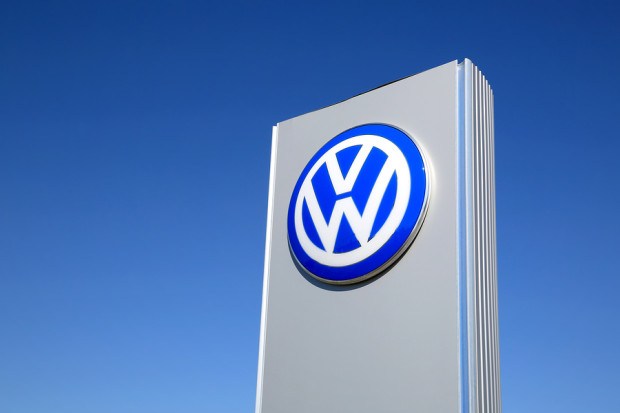Volkswagen AG is asking for a final sign-off on its $14.7 billion settlement with drivers as it continues to seek regulators’ approval of a fix for 482,000 pollution-spewing vehicles still on U.S. roads.
Without an approved repair, VW may be left with only one option: buy back the cars with so-called defeat devices from the owners. And the German automaker might have to do the same for a smaller group of vehicles with larger 3.0-liter diesel engines equipped with the emissions-cheating software.
VW reached the settlement covering the 2.0-liter engines in June with consumers and regulators including the U.S. Environmental Protection Agency. With a San Francisco federal judge set to consider final approval of that deal Tuesday, the EPA has yet to approve any of VW’s proposals to fix those cars, said a person familiar with the matter who wasn’t authorized to speak publicly.
A formal proposal by VW for a fix won’t be considered by federal regulators in an official review until after the settlement is approved by the judge. VW’s negotiations with the EPA have been fluid, said the person who asked not to be identified.
So far, regulators led by the California Air Resources Board have been critical of the carmakers’ attempted solutions. CARB has twice rejected VW’s recall plans — once in a January letter related to the 2-liter engines and again in a similar July statement for the 3-liter models.
For more on the effects of the diesel-cheating scandal on VW, click here.
VW has agreed to spend as much as $10 billion to buy back 2-liter models and compensate drivers. It also agreed to pay $2.7 billion to federal and California regulators to fund pollution-reduction projects and pay $2 billion to be invested in clean technology. A court conference is set for Nov. 3 on VW’s negotiations with regulators and consumer lawyers on a solution for the 85,000 vehicles with 3-liter engines, including the VW Touareg, Porsche Cayenne and Audi Q5.
VW Settlements
The automaker has earmarked almost $19.6 billion (17.8 billion euros) to extricate it from the emissions-cheating scandal. That includes $1.2 billion to its U.S. franchise dealers, along with $86 million to California and $603 million to other states over violations of consumer protection laws. VW still faces criminal probes, shareholder claims and environmental lawsuits by multiple states as well as lawsuits and a criminal probe in Europe.
U.S. District Judge Charles Breyer allowed the settlement to move ahead in July, calling the proposed agreement “fair, adequate and reasonable.” At Tuesday’s hearing to determine whether the agreement is fair, Breyer is set to consider objections on behalf of more than 400 car owners. Breyer has allotted no more than two minutes for arguments to each of the critics.
Car owners could have gotten the same deal — buybacks and compensation — through VW’s settlement with federal regulators, according to the Center for Class Action Fairness, an advocacy group primarily complaining about the estimate of more than $300 million in fees to be paid plaintiffs’ lawyers. The Center also said the announced value of the settlement was inflated.
Consumer lawyers were essential to the quick settlement, they argued in court filings last month. Attorneys’ fees will be limited to $324 million, far below the typical share in class-action settlements.
The case is In Re: Volkswagen “Clean Diesel” Marketing, Sales Practices and Products Liability Litigation, 15-md-02672, U.S. District Court, Northern District of California (San Francisco).





















 Large Scale Cargo Ring Busted in LA, $5M Recovered
Large Scale Cargo Ring Busted in LA, $5M Recovered  High Court Ruling on Trump Tariffs to ‘Ease Uncertainty,’ Says AM Best
High Court Ruling on Trump Tariffs to ‘Ease Uncertainty,’ Says AM Best  Viewpoint: Runoff Specialists Have Evolved Into Key Strategic Partners for Insurers
Viewpoint: Runoff Specialists Have Evolved Into Key Strategic Partners for Insurers  Premium Slowdown, Inflation Factors to Lead to Higher P/C Combined Ratio: AM Best
Premium Slowdown, Inflation Factors to Lead to Higher P/C Combined Ratio: AM Best 










